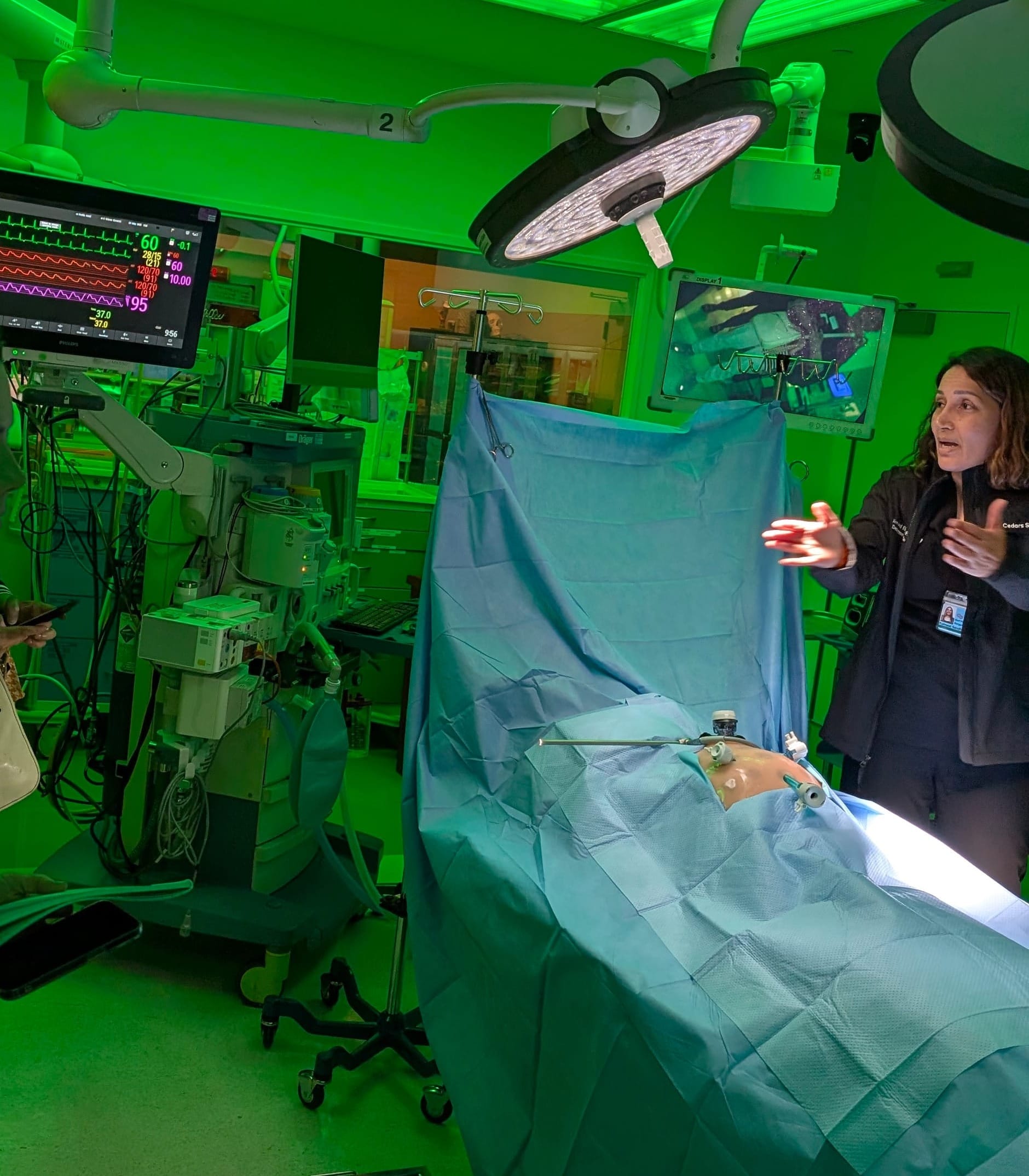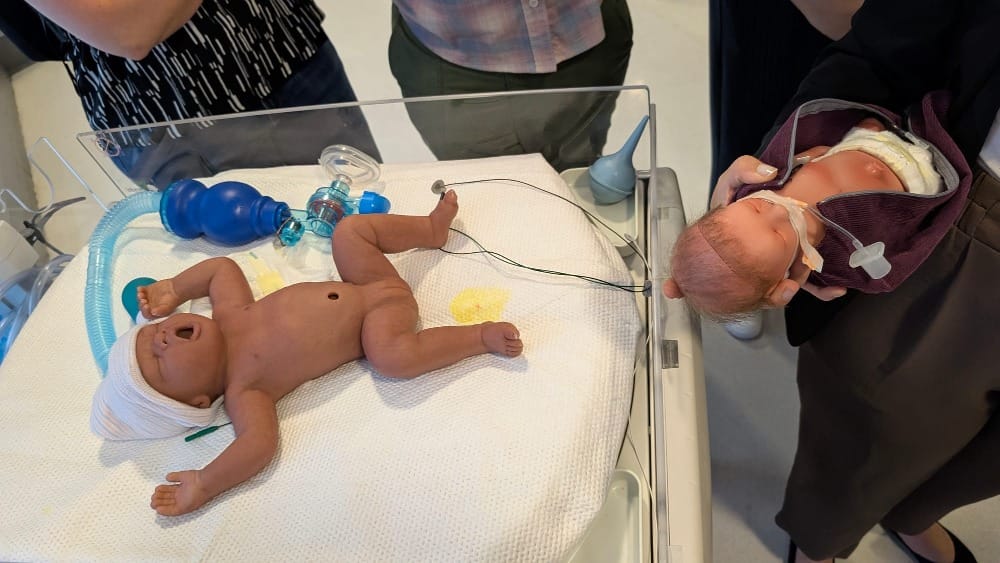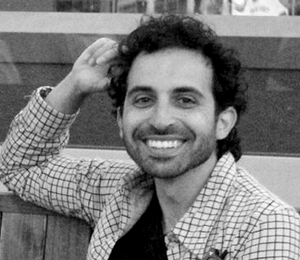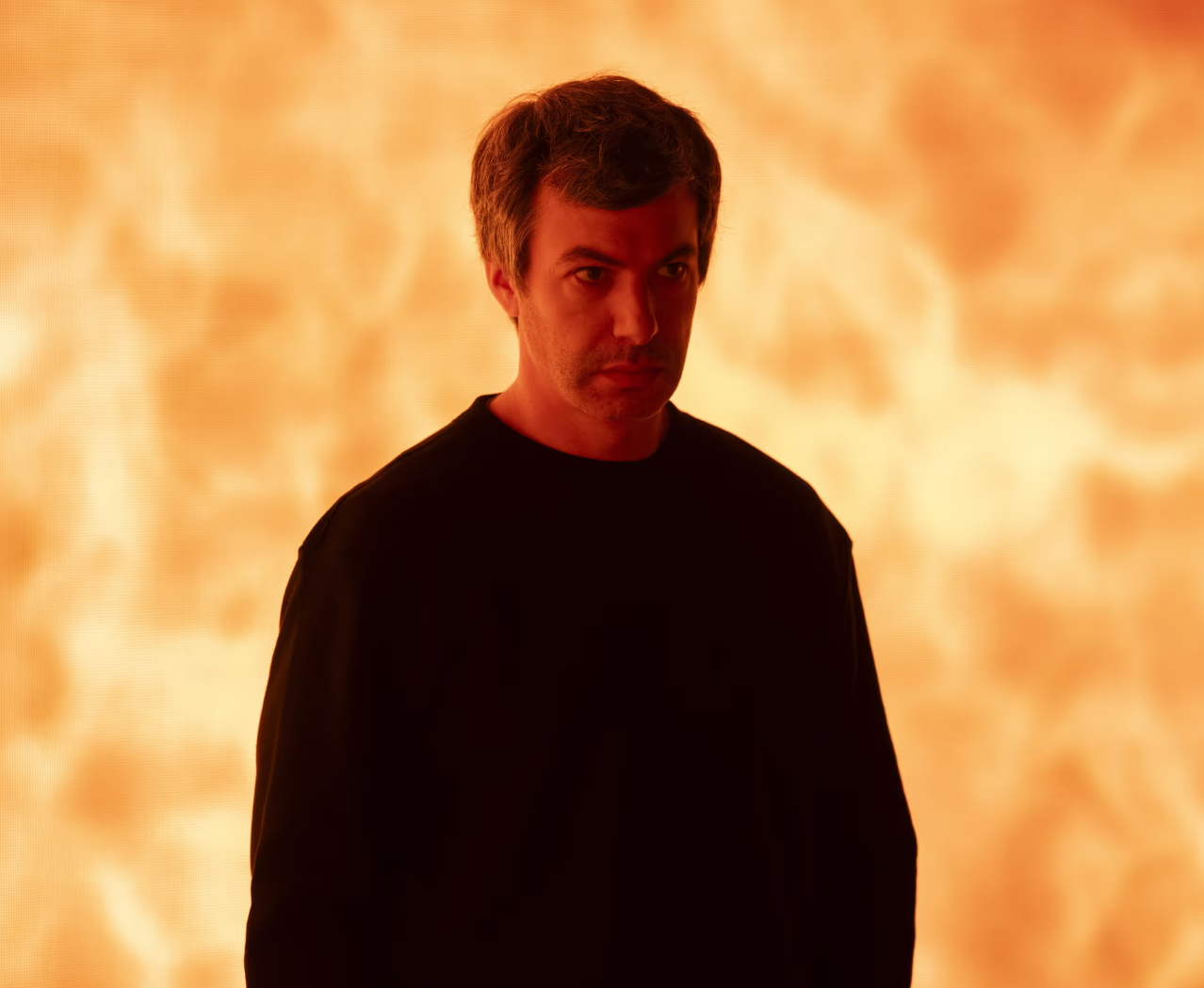This week I toured a training wing at the Cedars Sinai Medical Center in Los Angeles, and all I could think about was Nathan Fielder. In this season of Fielder's The Rehearsal series on HBO, the comedian exposes a tense shortcoming in modern aviation: communication between pilots. The immersive way that hospital staff role play bore a striking resemblance.
For the uninitiated, The Rehearsal is an awkward, absurd experiment in comedy. Fielder generally helps regular people through conflicts in their life by building elaborate replica environments—stages for them to rehearse a high-stakes moment. Last season opened with an exact replica bar filled with actors, built just for one man to practice an awkward conversation with a trivia partner. The absurdity is not always funny per se, but it’s usually thought-provoking for anyone who thinks a lot about the way people communicate.
In the newest season, Fielder claims to have studied decades of airline crash reports and identified an overlooked theme. He tells John Goglia, a former member of the National Transportation Safety Board, that copilots seem uncomfortable voicing concerns to higher ranking flight captains in the cockpit, despite being required to speak up (or literally grab the controls) if they spot a safety concern. The HBO team installs flight simulators, builds a replica airport terminal, and stages a bogus singing competition—all toward studying how pilots communicate.
The impulse to “rehearse” for difficult everyday moments isn’t unique to this show. NBA teams train for ultra-specific scenarios and opposing players. Politicians practice for debates and events. Pathological overthinkers rehearse and replay mundane scenarios over and over in my hea—umm ... their heads. I meant their heads.
But something about this simulation center at Cedars Sinai really resonated with Fielder's experiment.

My first stop on this tour with other health journalists was a replica operating room. In the center, a replica torso had small incisions and laparoscopic surgical tools laid out. One volunteer steered a camera with a long probe inside the fake abdomen, while another volunteer maneuvered a tool to clasp rubber shapes and delicately slide them onto thin rods. A few feet away, volunteers toyed with a robotic machine designed to grant surgeons even more precise movements.
This immersive setup lets physicians rehearse fine motor skills, but (like piloting a 737) surgery is not a solo operation. This simulation center is about more than that.
“The most common form of medical error is communication,” said Kacey Hamilton, a physician who specializes in minimally invasive gynecological surgery.
Surgery requires a team. An anesthesiologist may mishear the surgeon's request for medication. The surgeon may misspeak, requesting an unusual amount as they juggle multiple tasks. A nurse may notice the issue. It’s everyone’s responsibility to speak up if they think there is an error. Surgical simulations allow healthcare providers to rehearse how they talk to one another. “A huge part of what we look at is how they are communicating,” Hamilton told me. “How are they working out the seven different things they're doing at the same time.”
In aviation safety, they call this multi-crew cooperation training. And like pilots, surgeons have a history of male-dominated hierarchies. Hamilton told me she's seen that culture shift within the last decade.
In the center’s trauma simulator, a full-size motorized body lay on the ground in a pile of sand, fake glass, and crushed beer cans. His leg twitched beneath a “blood” soaked pant leg. Ash smeared his face. Screens surrounding the scene showed a plane crash, and a device pumped the smell of vehicular accident into the room. The educator invited me to place a neck collar, oxygen mask, and a tourniquet on the dummy.
The similarities between surgical simulation and The Rehearsal run deeper than occupational practice. Both also reveal how money diffuses. Whether we accept that Fielder's intentions with aviation reform are genuine or not, HBO poured millions of dollars into The Rehearsal because they determined that the right story can make a topic as dry as aviation regulation entertaining. They have that kind of money to spend, and the outlandish realism is what makes Fielder’s absurdism work. (One of my favorite moments: an actor working at a replica Panda Express in the replica airport terminal saying “there are no specials today,” because that’s what they observed when HBO flew them to the real airport and the real Panda Express.)
Cedars is a very wealthy nonprofit research medical center. They raised $1 billion between 2018 and 2024 thanks to multiple $100+ million gifts. Their simulation center is not an absurdist fever dream like The Rehearsal is. It's an authentic training ground for hospital staff to provide care in the best ways they can afford.
Toward the end of the tour, staff showed us hyper-realistic mannequins. A large-chested "woman" meant to study whether care providers perform CPR differently on different anatomies. A 7-lb “newborn” with 3D printed airways. And a tiny pre-term newborn mannequin which cost $130,000, according to center director Russell Metcalfe Smith.
What justifies the cost is the chance to rehearse emotion, as well as technique, he said. These hyper realistic models simulate the emotional weight of treating such fragile patients. “It’s one of only five in the country,” he said of the pre-term mannequin.

This week, the Federal Aviation Administration rejected Fielder's claims about poor training. Also this week, the Department of Health and Human Services affirmed its commitment to slashing medical research funds from NIH. (Cedars Sinai received $100 million from NIH in 2022.)
I can't speak to HBO’s intentions when they bankrolled Nathan Fielder's grand finale, where the comedian allegedly flies a very real Boeing 737 with very real passengers to document a communication breakdown in the cockpit. Nor would I contest in any way that Cedars Sinai does important work in my community and for scientific research. What's absurd is how our society must rely on comedians to skewer out-in-the-open bureaucratic incompetence, and billionaire fundraisers to prop up our healthcare system.



